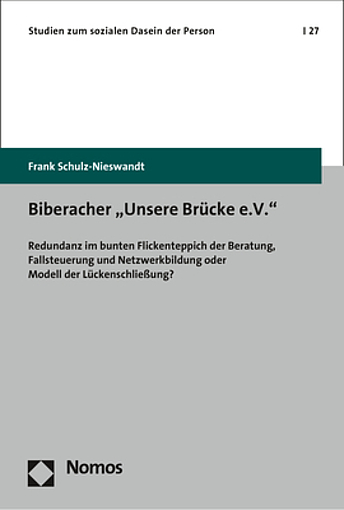englischAn important problem in Germany’s cure and care system is the vulnerability of elderly people with limited social networks when they leave hospital. Not only is the problem well known under the conditions of the DRG system, but also in international discussions about the key challenge of helping the elderly to avoid falling into the ‘no-care zone’ and about the possible answer to the problem being the idea of transitional care. This study discusses the problem in relation to a real experiment conducted in the rural region of Biberach (Riß) in South West Germany. Its analysis was part of a mixed methods design evaluation conducted by Hermann Brandenburg and his research team from the Faculty of Nursing Science at the Philosophical-Theological University of Vallendar on behalf of the ministry of Baden-Württemberg. Their study recommends how to use the potential of social law to find better solutions. From the perspective of the variety of different local/regional sociopolitical cultures, the study explains the idea of using equi-functional solutions to cope with the challenge.
Die Arbeit stellt eine interdisziplinäre Expertise in Begleitung eines empirischen Mixed-Methods-Design-Projekt angewandter Forschung der Fakultät für Pflegewissenschaft in Vallendar, durchgeführt von Hermann Brandenburg und Team (im Auftrag des Landes Baden-Württemberg), zur Sicherstellung von Brückenfunktion im Krankenhausentlassungsmangement älterer Menschen im Rahmen eines lokalen Projekts dar. Es werden sozialrechtliche Schlussfolgerungen gezogen. Krankenhausentlassung gemäß § 11 (4) SGB V unter DRG-Bedingungen ist trotz aller Qualitätsmanagementmaßnahmen ein Risiko vulnerabler Menschen im höheren Alter. Das Thema ist als Transitional Care-Phänomen der No Care-Zonen auch international bekannt. Die Problematik wird in die Diskurs- und Praxisentwicklung von Caring Communities systematisch eingeordnet. Es werden sozialrechtliche Perspektiven erörtert. Das Problem ist signifikant evident und durch eine lokaler/regionale Vielfalt äqui-funktionaler Lösungen zu bewältigen.


